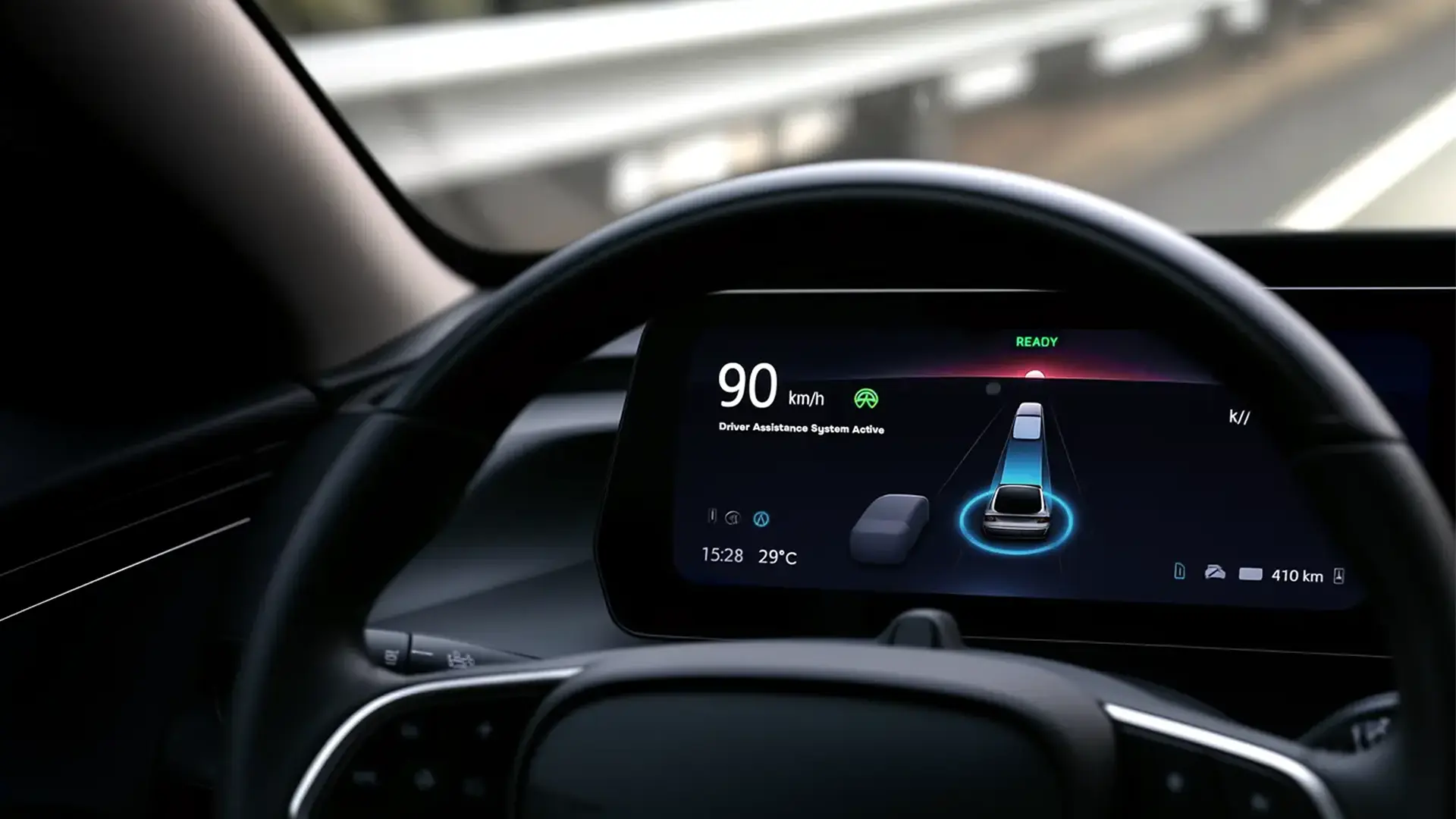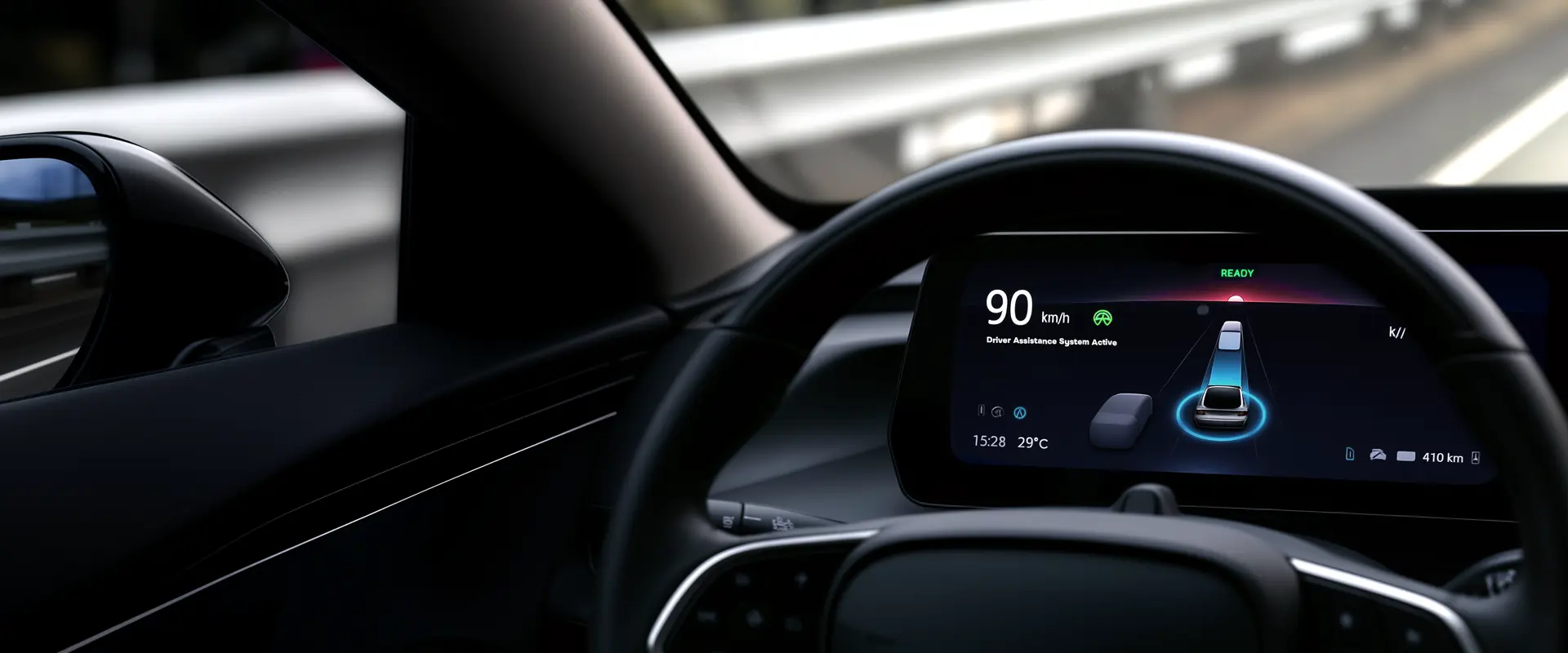Moving ADAS and Autonomous Driving from the Lab to Production
Autonomous cars feature the most complex hardware and software ever deployed by automakers. The software must process a flood of data from sensors such as cameras, LiDAR and radar in real time so it can make safe decisions while in control of the vehicle. This requires highly efficient, safe and secure software that can make use of special purpose hardware (accelerators) for vision processing and deep neural-net based machine learning algorithms.
The QNX® Solution for ADAS and Autonomous Driving provides a software foundation that enables these and other automated driving applications. And it is built upon the QNX® OS for Safety, certified by TÜV Rheinland to ISO 26262 ASIL D.
A Flexible, Modular and Hardware-Optimized Approach to ADAS Safety
- Flexible Platform Approach
- Reduced Recoding and Redesign
- Optimized for Automotive Silicon
- Technology

Reduced Recoding and Redesign for Software and Hardware

Optimized for Automotive Silicon

Technology
The innovative QNX Solution for ADAS and Autonomous Driving offers numerous advanced features, including:
- Reference implementations for four-camera surround view, single-camera ADAS and multi-sensor input.
- Low latency sensor data acquisition.
- Data visualization and time-stamped data samples.
- Network plugins to provide sensor data over automotive networks.
- Configurable time stamp sources like IEEE 1588 PTP or IEEE 802.1AS.
- Robot OS integration for testing and prototyping.
- Integrated open-source libraries.

A Flexible, Modular and Hardware-Optimized Approach to ADAS Safety
-
Flexible Platform Approach
With one solution, the QNX Solution for ADAS and Autonomous Driving offers a foundation for building ADAS and automated driving applications. From multi-camera surround view, to active safety systems such as emergency braking, all the way to fully autonomous driving systems.![Flexible Platform Approach]()
-
Reduced Recoding and Redesign for Software and Hardware
The autonomous car control system is a distributed processing environment that manages the flow of data from sensors to decision making, and finally to actuation of the physical components, such as steering, throttle and braking. With a wide range of hardware, a modular software framework designed to be sensor- and processor-agnostic means applications can be written once and reused on different hardware systems.![Reduced Recoding and Redesign for Software and Hardware]()
-
Optimized for Automotive Silicon
Automotive systems on chips (SoCs) are getting faster and more powerful and can handle the computation loads of image processing, machine learning and digital control algorithms. Our software is compatible with a variety of specialized processing cores available in the world’s leading silicon for ADAS.![Optimized for Automotive Silicon]()
-
Technology
The innovative QNX Solution for ADAS and Autonomous Driving offers numerous advanced features, including:
- Reference implementations for four-camera surround view, single-camera ADAS and multi-sensor input.
- Low latency sensor data acquisition.
- Data visualization and time-stamped data samples.
- Network plugins to provide sensor data over automotive networks.
- Configurable time stamp sources like IEEE 1588 PTP or IEEE 802.1AS.
- Robot OS integration for testing and prototyping.
- Integrated open-source libraries.
![Technology]()
Supported Sensors
Cameras
- Raspberry Pi Camera Module 3
- GigE vision cameras
- ONVIF Profile S cameras
- Flea 3 Series USB 3.0 Cameras
- Blackfly Series USB 3.0 Cameras
- Grasshopper 3 Series USB 3.0 Cameras
- Chameleon 3 Series USB 3.0 cameras
Radar
- Delphi ESR
- Delphi SRR2
LiDAR
- Velodyne VLP-16
- Velodyne VLP-16 HiRes
- Leddartech VU8
GPS/IMU
- Xsens MTI G-710
- Novatel GPS and IMU

Supported Processors
The QNX Solution for ADAS and Autonomous Driving supports:
- Raspberry Pi 4
- Raspberry Pi 5
- NXP I.MX8QM
- Renesas R-Car V3H
Resources




